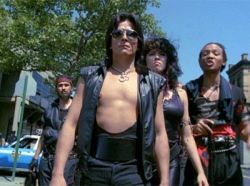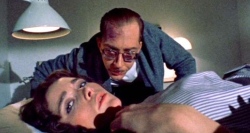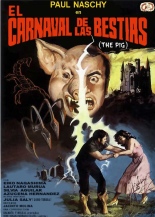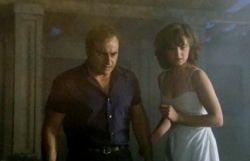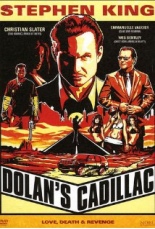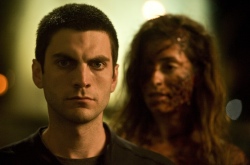
 It’s impossible to watch Orca without thinking of Jaws. Hell, director Michael Anderson (Logan’s Run) won’t let you! Ennio Morricone’s score borrows a cue or two from John Williams, shots of the fin are like a constant visual reminder, and — let’s be honest — producer Dino De Laurentiis never would’ve made this project had Jaws not eaten up box-office records. Given Dino’s Kong-sized ego, the killer-whale film even acts like it’s out to top the Great White, opening with a scene in which a shark is turned to bloody chum by a whale, as if to say, “You’ve been pwned, Spielberg!”
It’s impossible to watch Orca without thinking of Jaws. Hell, director Michael Anderson (Logan’s Run) won’t let you! Ennio Morricone’s score borrows a cue or two from John Williams, shots of the fin are like a constant visual reminder, and — let’s be honest — producer Dino De Laurentiis never would’ve made this project had Jaws not eaten up box-office records. Given Dino’s Kong-sized ego, the killer-whale film even acts like it’s out to top the Great White, opening with a scene in which a shark is turned to bloody chum by a whale, as if to say, “You’ve been pwned, Spielberg!”
He wasn’t. Not just a flop, but a real slog, Orca stars Richard Harris (Gladiator) as the possibly insane Capt. Nolan, who’s out to hunt down the “most powerful animal in the world,” according to a marine biologist (Charlotte Rampling, Zardoz). That angers her, and so does Nolan’s interest in her, prompting her to diss him with a curt, “You’re a sensitive bore.” (Oh, no, you di’n’t!)
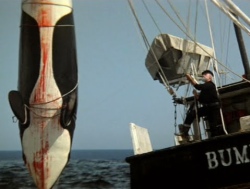 Nolan hooks a female killer whale, not knowing the beast was pregnant. When he hoses its expelled fetus back into the deep, the father whale (Orca, I guess) makes it his life’s work to follow them across the ocean and take ’em out. When Orca makes off with a character’s leg, Nolan channels his inner Ahab and clunkily vows, “I’ll fight you, you revengeful son of a bitch!” The last five or so minutes provide the thrills and atmosphere missing all along.
Nolan hooks a female killer whale, not knowing the beast was pregnant. When he hoses its expelled fetus back into the deep, the father whale (Orca, I guess) makes it his life’s work to follow them across the ocean and take ’em out. When Orca makes off with a character’s leg, Nolan channels his inner Ahab and clunkily vows, “I’ll fight you, you revengeful son of a bitch!” The last five or so minutes provide the thrills and atmosphere missing all along.
Among the supporting cast, One Flew Over the Cuckoo’s Nest‘s Will Sampson plays the Native American no one listens to, and soon-to-be-sex-symbol Bo Derek makes her film debut as the girl who seemingly cannot blink. Orca is played by himself; he’s a talented whale, somehow capable of screaming underwater. —Rod Lott


